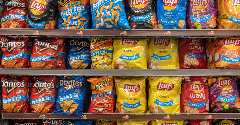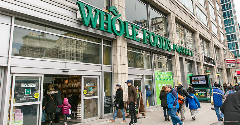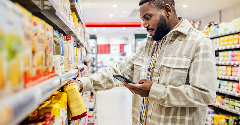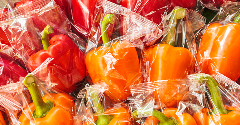News
Study: 2% of Brazil’s soybean farms are responsible for 62% of deforestation
29 Jul 2020A new study published in the Journal of Science found that 20% of soy and 17% of beef imports into European from Brazil may be contaminated with illegal deforestation. Although a substantial figure, this deforestation is linked to a small number of farms – 62% of illegal deforestation in the Brazilian Amazon and Cerrado can be accounted for by 2% of the farms in the area, according to the new study.
Roughly 41% or 13.6 million metric tons of Europe’s soy imports come from Brazil, and of those imports, 69% come from the Amazon and Cerrado regions. For cattle that percentage varies between 25% to 40% annually, according to CNN.

These findings come at a key moment when the European Union and Mercosur – a bloc of Latin American countries – are in the midst of negotiating a $19 billion trade deal for agricultural commodities. Already The Guardian reported that Austria raised concerns over the fires that are raging in the Amazon, and Forbes reported that French president, Emmanuel Macron suspended negotiations saying that France will not finalize a trade deal with a country that does not respect the tenants of the Paris Climate Agreement.
In the study, authors noted that emissions from deforestation and forest fires in Brazil could cancel out EU climate change mitigation efforts.
Deforestation has sped up under the presidency of Jair Bolsonaro who has significantly weakened Brazilian environmental laws since taking office in January 2019. Although CNN reported the president saying that protecting the Amazon and combatting illegal deforestation is a priority, the governments military response has been criticized for being largely unsuccessful. By April of this year, data from Brazil's National Institute for Space Research (INPE) showed that deforestation increased 64% compared to the same month in 2019. The first three months of this year experienced a 50% increase in deforestation compared to last year.
The authors of the study said, "all economic partners of Brazil should share the blame for indirectly promoting deforestation and GHG (greenhouse gas) emissions by not barring imports and consuming agricultural products contaminated with deforestation, illegal or not."
The Guardian reported that the commodities coming into Europe that are the subject of the current trade deal negotiations are already ramping up, there is significant pushback on Brazil’s continued deforestation from corporate and financial interests as well as governments. Still, reports from the World Wildlife Fund show that a record-breaking shipment of soy arrived in Amsterdam’s ports from Brazil this summer.
On July 14, President Bolsonaro set a ban on agricultural and intentional forest for 120 days as Brazil enters its dry season.
Even with a ban, deforestation that occurred earlier cannot be easily reverted. Data from the study showed that 45% of farming properties in the Amazon and 48% of properties in the Cerrado are failing to comply with Brazil’s Forest Code and 20% have produced soy on land deforested after 2008; half of that deforestation was done so illegally.
The study does acknowledge that the vast majority of Brazil’s agriculture is free of deforestation, but it still encourages the EU to throw the might of its trading power behind a push to convince Brazil to enforce its deforestation policies. Authors from the study say that any trading ban should not include farming plots that were legally authorized for deforestation.
Related news

PepsiCo formulates ‘naked’ Cheetos and Doritos products
31 Dec 2025
US food giant PepsiCo has launched its Simply NKD range, a move it says reimagines its popular products with new formulations free from artificial flavours, dyes, and colours.
Read more
Debate over ban on ‘meaty’ names for plant-based products reaches stalemate
26 Dec 2025
The debate over a ban on plant-based products using “meaty” terms has reached a stalemate, leaving manufacturers in limbo and still facing overhauls to their marketing and packaging.
Read more
Ingredient transparency key to success in European natural health market
12 Dec 2025
Europe’s $40.7 billion supplements market is growing fast, fuelled by demand for products that support healthy ageing, mental wellbeing, and preventive health, say experts.
Read more
Whole Foods Market forecasts fibre frenzy for 2026
11 Dec 2025
Whole Foods Market has released its top 2026 trends, predicting that a fibre frenzy will take place next year as health-conscious consumers seek out nutritious, filling options.
Read more
Which sustainability-related labels are consumers willing to pay a premium for?
10 Dec 2025
Products with animal welfare and geographic origin labels elicit a higher willingness to pay a premium than those with carbon-related labels, research suggests.
Read more
Sorghum emerges as better-for-you hero ingredient
9 Dec 2025
With the launch of Novak Djokovic’s sorghum-based brand, the grain’s popularity in the better-for-you snacking sphere is on the rise, thanks to its nutritional and sensory properties.
Read more
Turning global trade challenges into opportunities
4 Dec 2025
While our food innovation ecosystem is in a healthy place, certain barriers persist. A panel of experts at Fi Europe shared their ideas and strategies for overcoming these, to fully unleash Europe’s potential.
Read more
Yuka’s food scanning app helps consumers make healthier choices
2 Dec 2025
Global food scanning app Yuka helps consumers understand the content of their shopping baskets and shapes producers’ reformulation plans.
Read more
Plastic packaging toxicity a ‘ticking timebomb’ for FMCG companies
1 Dec 2025
Studies on the toxicity of plastic have spiked in the past decade – and the evidence points to a “ticking timebomb” for manufacturers and consumers alike, an analysis suggests.
Read more
Non-UPF Program extends certification scheme to entire food industry
30 Nov 2025
The Non-UPF Program has extended its certification scheme to the wider food sector, championing a move towards healthier consumption habits.
Read more